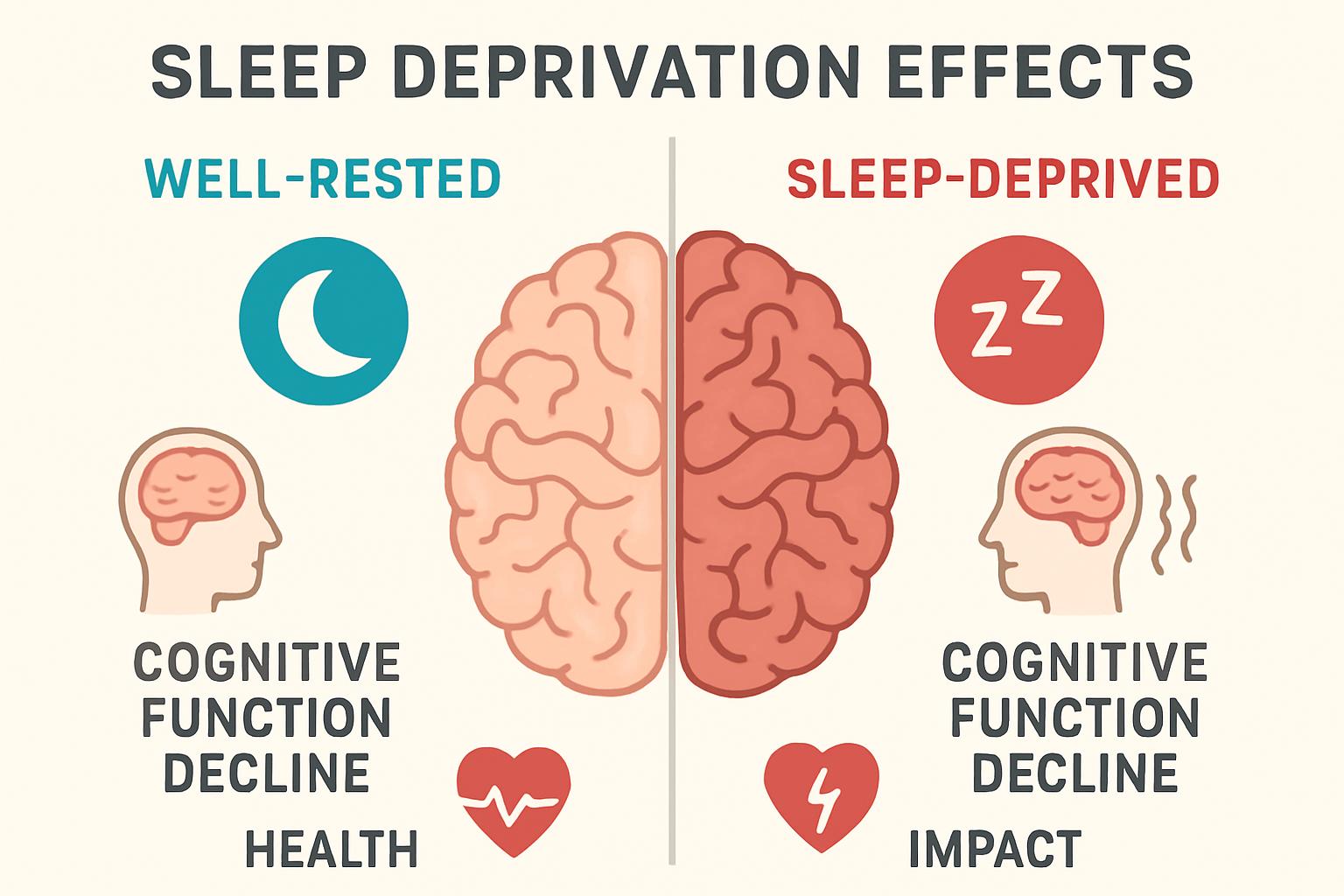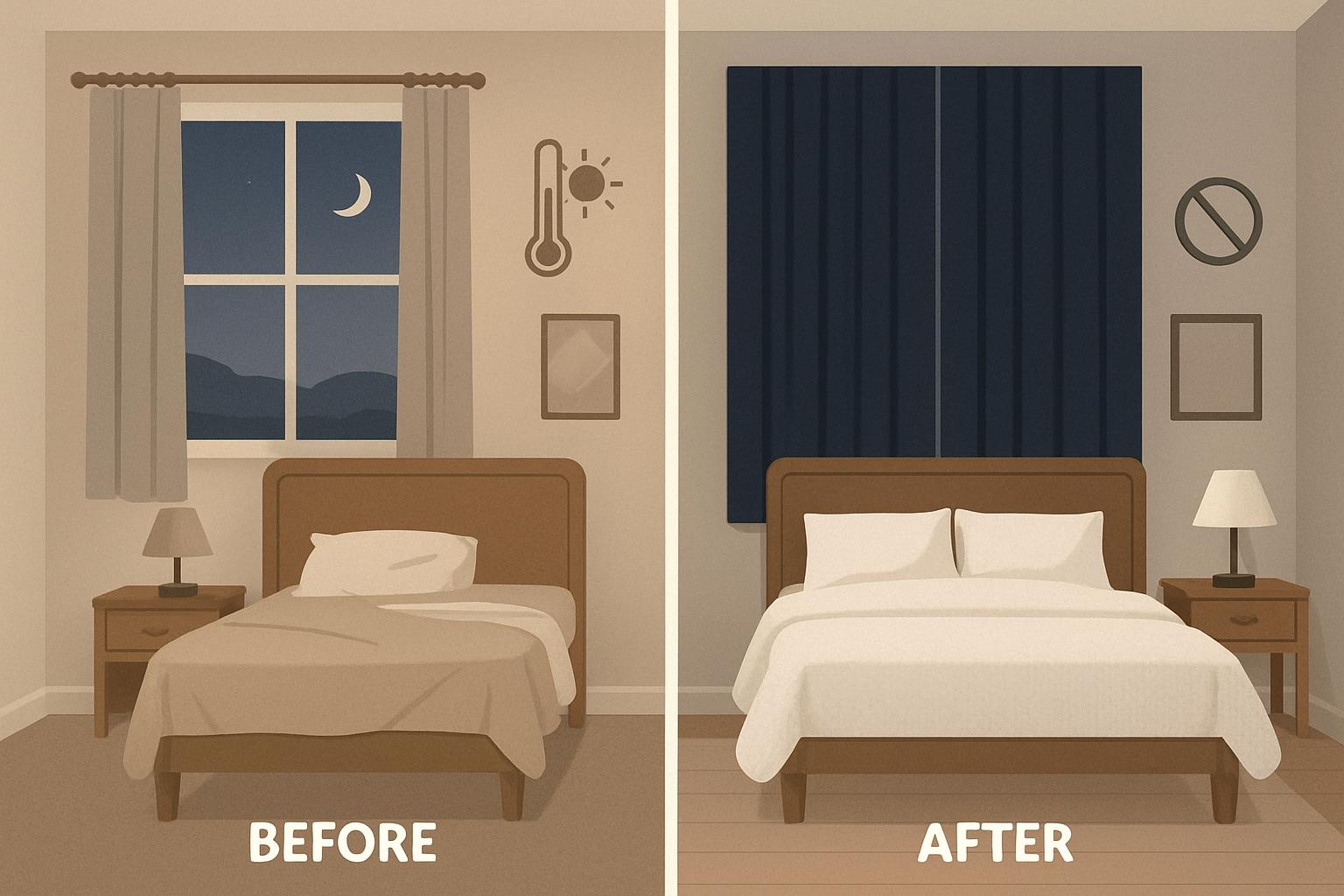
Medical Disclaimer: This article provides educational information about GERD and its relationship with sleep. Always consult with healthcare professionals for proper diagnosis and treatment of medical conditions.
Understanding GERD and Its Impact on Sleep
Gastroesophageal reflux disease (GERD) affects millions of people worldwide and has a profound impact on sleep quality. This chronic condition occurs when stomach acid frequently flows back into the esophagus, causing irritation and discomfort that can significantly disrupt nighttime rest.
The relationship between GERD and sleep is bidirectional—acid reflux can worsen sleep quality, while poor sleep can exacerbate GERD symptoms. Understanding this complex interaction is crucial for effective management and improved quality of life.
Why GERD Symptoms Worsen at Night
Several physiological factors make nighttime particularly problematic for GERD sufferers:
Gravitational Factors
- Horizontal position: Lying flat reduces gravity's help in keeping acid in the stomach
- Slower clearance: Acid takes longer to clear from the esophagus when lying down
- Increased contact time: Acid remains in contact with esophageal tissue longer
- Pooling effect: Acid can pool in the esophagus and throat area
Physiological Changes During Sleep
- Reduced swallowing: Less frequent swallowing means less acid clearance
- Decreased saliva production: Saliva helps neutralize acid
- Slower gastric emptying: Food stays in stomach longer during sleep
- Relaxed lower esophageal sphincter: The muscle barrier becomes less effective

Common Nighttime GERD Symptoms
GERD can manifest in various ways during sleep, often leading to sleep disruption:
Direct Symptoms
- Heartburn: Burning sensation in chest or throat
- Acid regurgitation: Sour or bitter taste in mouth
- Chest pain: Can mimic heart problems
- Difficulty swallowing: Sensation of food sticking in throat
- Nausea: Feeling sick to stomach during the night
Sleep-Related Symptoms
- Frequent awakening: Waking up due to discomfort or pain
- Coughing fits: Acid irritating the airways
- Choking sensation: Feeling like you can't breathe
- Hoarse voice: Morning voice changes from acid exposure
- Sore throat: Throat irritation from acid
How GERD Disrupts Sleep Quality
The impact of GERD on sleep extends beyond just nighttime discomfort:
Sleep Architecture Changes
- Fragmented sleep: Frequent awakenings disrupt sleep cycles
- Reduced deep sleep: Less time in restorative sleep stages
- REM sleep disruption: Important dream sleep is interrupted
- Sleep latency increase: Takes longer to fall asleep due to discomfort
Daytime Consequences
- Excessive daytime sleepiness: Poor nighttime sleep affects daytime alertness
- Cognitive impairment: Difficulty concentrating and memory problems
- Mood disorders: Increased risk of depression and anxiety
- Reduced quality of life: Overall life satisfaction decreases
The Sleep-GERD Cycle
Poor sleep can actually worsen GERD symptoms, creating a vicious cycle:
How Poor Sleep Worsens GERD
- Stress hormone increase: Sleep deprivation raises cortisol levels
- Increased acid production: Stress can stimulate stomach acid
- Delayed gastric emptying: Poor sleep slows digestion
- Weakened immune response: Less ability to heal esophageal damage
- Poor lifestyle choices: Fatigue leads to worse eating and drinking habits
Sleep Position Strategies for GERD
Proper sleep positioning is one of the most effective ways to reduce nighttime reflux:
Head and Torso Elevation
- Optimal angle: Elevate head of bed 6-8 inches (15-20 cm)
- Whole torso elevation: Elevate entire upper body, not just head
- Bed risers: Place blocks under head of bed frame
- Wedge pillows: Use foam wedges for gradual elevation
- Adjustable beds: Electronic beds allow precise positioning
Side Sleeping Benefits
- Left side preference: Left side sleeping may reduce reflux
- Stomach positioning: Keeps stomach below esophagus
- Gravity assistance: Helps prevent acid backflow
- Avoid right side: Right side sleeping may worsen symptoms
Dietary Management for Better Sleep
What and when you eat significantly impacts nighttime GERD symptoms:
Foods to Avoid Before Bed
- Acidic foods: Citrus fruits, tomatoes, vinegar-based foods
- Spicy foods: Hot peppers, spicy sauces, curry
- Fatty foods: Fried foods, high-fat meats, creamy sauces
- Caffeine: Coffee, tea, chocolate, some sodas
- Alcohol: All types of alcoholic beverages
- Carbonated drinks: Sodas and sparkling water
- Mint: Peppermint and spearmint can relax the esophageal sphincter
Sleep-Friendly Foods
- Complex carbohydrates: Oatmeal, whole grain bread, rice
- Lean proteins: Chicken, fish, turkey
- Non-citrus fruits: Bananas, melons, apples
- Vegetables: Green beans, broccoli, cauliflower
- Low-fat dairy: Skim milk, low-fat yogurt
Timing Guidelines
- Last meal timing: Finish eating 3-4 hours before bedtime
- Small, frequent meals: Avoid large meals that increase acid production
- Bedtime snacks: If needed, choose small, low-acid options
- Hydration timing: Limit fluids 2 hours before bed
Lifestyle Modifications for Better Sleep
Several lifestyle changes can significantly improve both GERD symptoms and sleep quality:
Weight Management
- Abdominal pressure: Excess weight increases pressure on stomach
- Even modest loss helps: 5-10 pound loss can improve symptoms
- Gradual approach: Sustainable weight loss is most effective
- Exercise benefits: Regular activity improves digestion and sleep
Stress Management
- Relaxation techniques: Deep breathing, meditation, yoga
- Sleep hygiene: Consistent bedtime routines
- Stress reduction: Address sources of chronic stress
- Professional help: Counseling for anxiety or depression
Clothing and Sleep Environment
- Loose clothing: Avoid tight belts or waistbands
- Comfortable sleepwear: Non-restrictive pajamas
- Cool environment: Maintain comfortable room temperature
- Dark, quiet room: Optimize sleep environment
Medical Treatment Options
Various medications can help manage GERD symptoms and improve sleep:
Over-the-Counter Options
- Antacids: Quick relief for mild symptoms (Tums, Rolaids)
- H2 blockers: Reduce acid production (Pepcid, Zantac)
- Proton pump inhibitors: Stronger acid reduction (Prilosec, Prevacid)
- Timing considerations: Take medications as directed for optimal effect
Prescription Medications
- Stronger PPIs: Higher doses or different formulations
- Prokinetics: Help stomach empty faster
- Baclofen: Reduces lower esophageal sphincter relaxation
- Combination therapy: Multiple medications for severe cases
When to Seek Professional Help
Consult a healthcare provider if you experience:
Concerning Symptoms
- Symptoms occurring more than twice per week
- Severe chest pain that could indicate heart problems
- Difficulty swallowing or pain when swallowing
- Persistent cough or hoarseness
- Unintended weight loss
- Vomiting blood or black, tarry stools
Sleep-Related Concerns
- Frequent nighttime awakening due to reflux
- Excessive daytime sleepiness
- Choking or gasping during sleep
- Chronic insomnia related to GERD
- Sleep symptoms not improving with lifestyle changes
Advanced Treatment Options
For severe cases that don't respond to conservative treatment:
Surgical Interventions
- Fundoplication: Wrapping part of stomach around esophagus
- LINX device: Magnetic ring to strengthen esophageal sphincter
- Endoscopic procedures: Less invasive options for sphincter repair
- Consideration criteria: Severe symptoms despite medical management
Creating a GERD-Friendly Sleep Routine
Develop a comprehensive bedtime routine that addresses both GERD and sleep hygiene:
Evening Routine
- Finish eating 3-4 hours before bedtime
- Take evening medications as prescribed
- Engage in relaxing activities (reading, gentle stretching)
- Avoid screens 1 hour before bed
- Prepare elevated sleep surface
- Use relaxation techniques to reduce stress
Long-term Management Strategies
Successful GERD management requires a long-term approach:
Monitoring and Tracking
- Symptom diary: Track triggers and symptom patterns
- Sleep quality assessment: Monitor sleep improvements
- Medication effectiveness: Note which treatments work best
- Regular follow-ups: Work with healthcare providers for adjustments
Conclusion
GERD and sleep problems often go hand in hand, but with proper management, both conditions can be significantly improved. The key is understanding the relationship between acid reflux and sleep, then implementing a comprehensive approach that addresses diet, lifestyle, sleep positioning, and medical treatment when necessary.
Start with simple changes like elevating your bed and avoiding trigger foods before bedtime. If symptoms persist or worsen, don't hesitate to seek professional medical help. With the right combination of strategies, you can break the cycle of GERD-related sleep disruption and enjoy better rest and improved quality of life.
Bidirectional Relationship: GERD and sleep problems create a vicious cycle. Acid reflux disrupts sleep, while sleep deprivation increases acid production and reduces the body's ability to clear acid from the esophagus.
Remember that managing GERD is often a long-term process that requires patience and consistency. Work closely with your healthcare team to develop a personalized treatment plan that addresses both your reflux symptoms and sleep quality concerns.
← Back to Sleep Topics